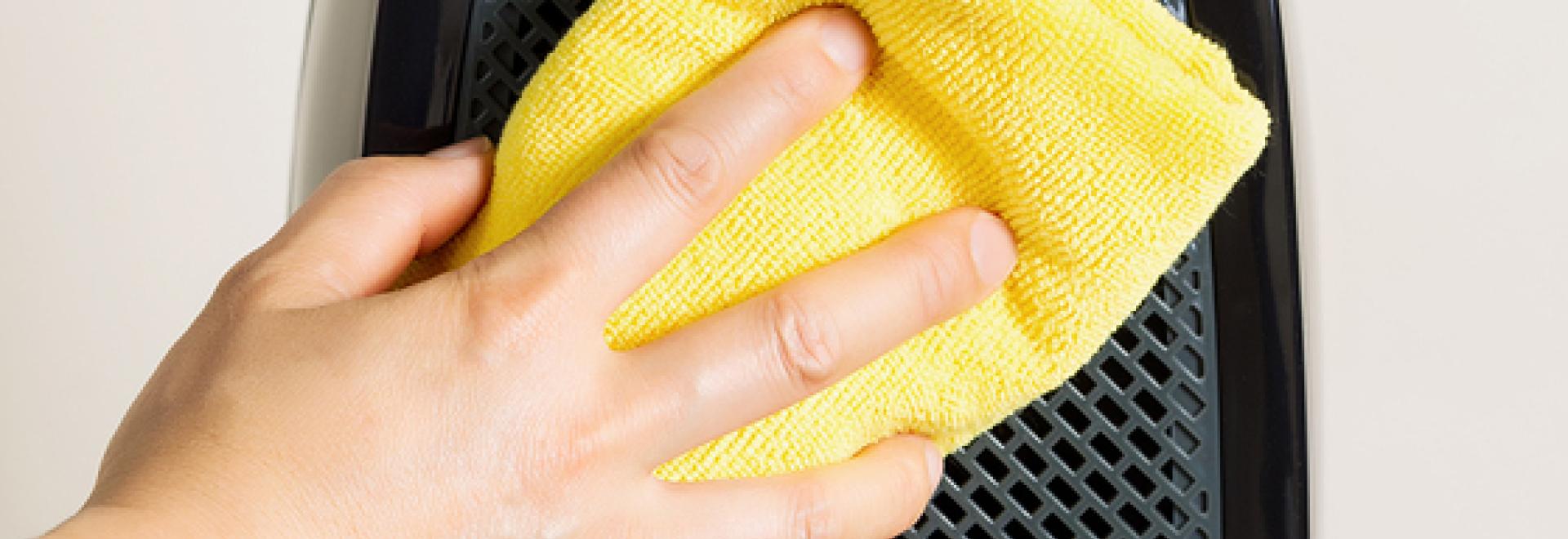
According to the Environmental Protection Agency, indoor air quality can be up to 100 times more polluted than the air outside. When many of us are spending most of our day inside, this can become problematic. Improper ventilation, carpeting, upholstery, cleaning agents, smoke, mold, mildew, dust and other airborne particulates play a big role in the quality of our indoor air. So, what can you do about it?
Stop Problems Where They Start
Many causes of poor air quality can be avoided when proper action is taken. If you are aware of leaks in your roof, basement, crawlspace or foundation, fix the leaks immediately. Leaks in these spaces can lead to the growth of hazardous mold and/or mildew. In addition to leaks, poorly ventilated areas can also contribute to the growth of mold and mildew. Be sure to ventilate bathrooms, kitchens and utility rooms that are prone to intense moisture levels. Ventilating these rooms will also help prevent odors from traveling to other areas of your home.
Another significant indoor pollutant is smoke. Make your home tobacco free and limit the use of wood burning fires and candles. These sources can produce harmful byproducts, fine particulates and other odors that can pollute the air. If you notice unpleasant odors in your home, use essential oils to refresh the air. A diffuser with natural odor-blocking scents like lavender, lemongrass and tea-tree oil is a chemical-free way to freshen up any space.
You can also prevent problems before they happen by storing toxic products outside the home or not letting your car idle inside the garage. Exhaust, solvents, cleaning agents, paints, pesticides and other potentially harmful elements should be kept away from the indoor living space whenever possible.
Clean Regularly
Cleaning your home regularly is one of the easiest ways to keep the air inside your home fresh. Use a damp cloth or mop when cleaning surfaces to avoid stirring dust and other particulates into the air. When you clean, try to use all natural cleaning products. Newer “green” cleaning agents marked “low VOC” (volatile organic compounds) cut down on odors and toxins.
Vacuuming your home at least once a week also helps to eliminate allergens that frequently collect in carpets and rugs, especially when using a HEPA vacuum. Regularly washing linens and draperies using hot water can also help to fight allergens and dust mites.
Other Preventative Measures
An easy and natural way to maintain healthy indoor air is to keep houseplants. Plants inside your home are great at filtering out contaminants and adding fresh oxygen back into the air. In addition to houseplants, having your heating and cooling equipment cleaned to remove dirt from the blower wheel and compartment, heat exchanger, and indoor coil will allow for proper and clean airflow across equipment surfaces. Having your air ducts cleaned, sanitized and sealed will remove dust, dirt, debris, insect carcasses, dust mites, and many other unhealthy contaminants that have been collecting in your duct since it was installed. Circulating air through dirty ducts to heat and cool your home is the equivalent of breathing through your vacuum cleaner bag. The American Lung Association recommends having your home’s ductwork clean every 5-7 years.
Changing your air filter or cleaning your air cleaner helps to cut down on the airborne particulates that are floating around. Plan to change or clean your home heating and cooling system’s air filtration device at least every thirty days to maintain optimal efficiency. Consider installing an air purifier or UV Germicidal lamp to purify the air and eliminate volatile organic compounds, mold spores, dust mites, mildew, bacteria, virus, fungi, etc. that cause or aggravate most respiratory illnesses and allergies.
Air that is heavy with too much moisture can contribute to mold and mildew growth inside your home. Manage the moisture in the air by installing a dehumidifier. Just as air can be too humid, it can be overly dry. Dry air often leads to upper respiratory trouble, itchy skin, and dehydration among other things. Dry air can be modified with a flow-through humidifier.
If you do all these things and you still experience problems it might be a good idea to test the air quality. Properly trained professionals can perform testing and monitoring to identify causes of poor air quality and help you eliminate them at their source.
No home is without its fair share of indoor air pollution. Taking these steps towards eliminating airborne particulates, allergens, contaminates and odors can significantly improve the quality of the air you breathe. Your indoor air will smell better; you’ll breathe easier, and live healthier.
Pippin Brothers is your indoor air quality specialist. Contact us today to learn how we can help you cure your indoor air quality concerns.